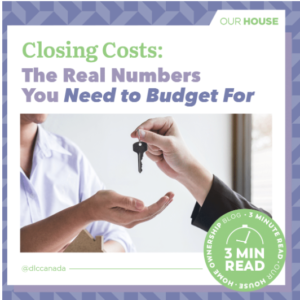
Refinancing your mortgage can be a smart financial move for many reasons, and as your trusted mortgage advisor, I’ve seen how much it can benefit homeowners!
Ideally, refinancing is done at the end of your mortgage term to avoid penalties, but the timing can vary depending on your goals. For some, it’s about unlocking the equity in their home to fund renovations or cover big expenses like college tuition. For others, it’s an opportunity to consolidate debt, lower their interest rate, or change up their mortgage product.
Let’s take a closer look at some of the ways refinancing your mortgage can help!
- Get a Better Rate: As interest rates have continued to decrease with the Bank of Canada updates these past few months, now is a great time to consider refinancing for a better rate and lower overall mortgage payments! Experts anticipate the Bank of Canada will move to have the overnight rate down to 4.0% at year-end and potentially down to 2.75% for 2025.
- Consolidate Debt: When it comes to renewal season and considering a refinance, this is a great time to review your existing debt and determine whether or not you want to consolidate it onto your mortgage. In most cases, the interest rate on your mortgage is less than you would be charged with credit card companies or other forms of financing you may have. Plus, having all your debt consolidated into a single payment can keep you on track!
- Unlock Your Home Equity: Do you have projects around the house you’ve been dying to get started on? Need funds for a large purchase such as a new vehicle or post-secondary education? When you are looking to renew your mortgage, it is a great opportunity to consider refinancing in order to take advantage of the home equity you have built up to help with these larger changes in your life!
- Change Your Mortgage Product: Are you unhappy with your existing mortgage product? If you have a variable-rate or adjustable-rate mortgage, you may be considering locking it in at the lower rates. Alternatively, you may want to switch your current fixed-rate mortgage to a variable option with the interest rates expected to continue decreasing into 2025. You can also utilize your refinance to take advantage of a different payment or amortization schedule to help pay off your mortgage faster!
PLUS! Some latest changes by the Government of Canada will make it even easier for you when it comes to your renewal and refinancing options:
- Those of you who may have an uninsured mortgage will no longer have to pass the stress test as of November 21st. This means that you have more flexibility when it comes to rates and mortgage products in renewal cases where you wish to switch lenders without adding additional funds to your mortgage!
- Beginning January 15, the federal government will allow default-insured mortgages to be refinanced to build a secondary suite. If you’ve been considering adding a suite to your property, you may be eligible to access up to 90% of your home’s equity for this purpose.
No matter your plans or situation, please don’t hesitate to reach out to discuss if this could benefit you!



